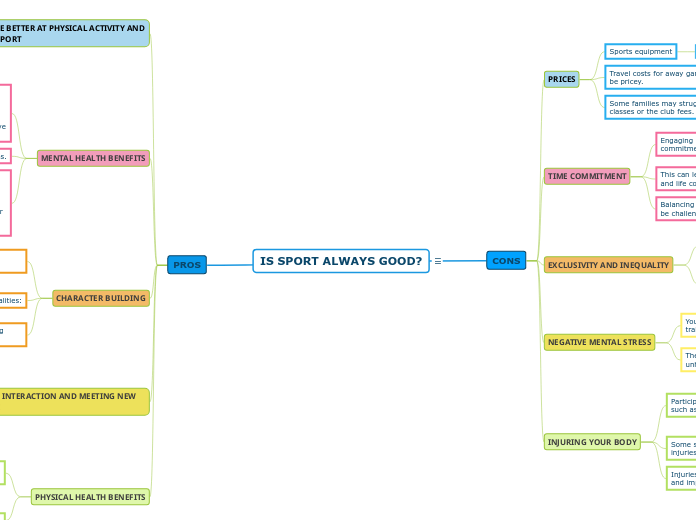作者:Africa Maria Alegre Bowen 1 年以前
75
IS SPORT ALWAYS GOOD?
Engaging in sports offers numerous benefits, including improved physical activity and skill development, as well as fostering discipline, goal-setting, leadership, and teamwork. Sports also promote character building by teaching values such as sportsmanship, respect, and fair play.









